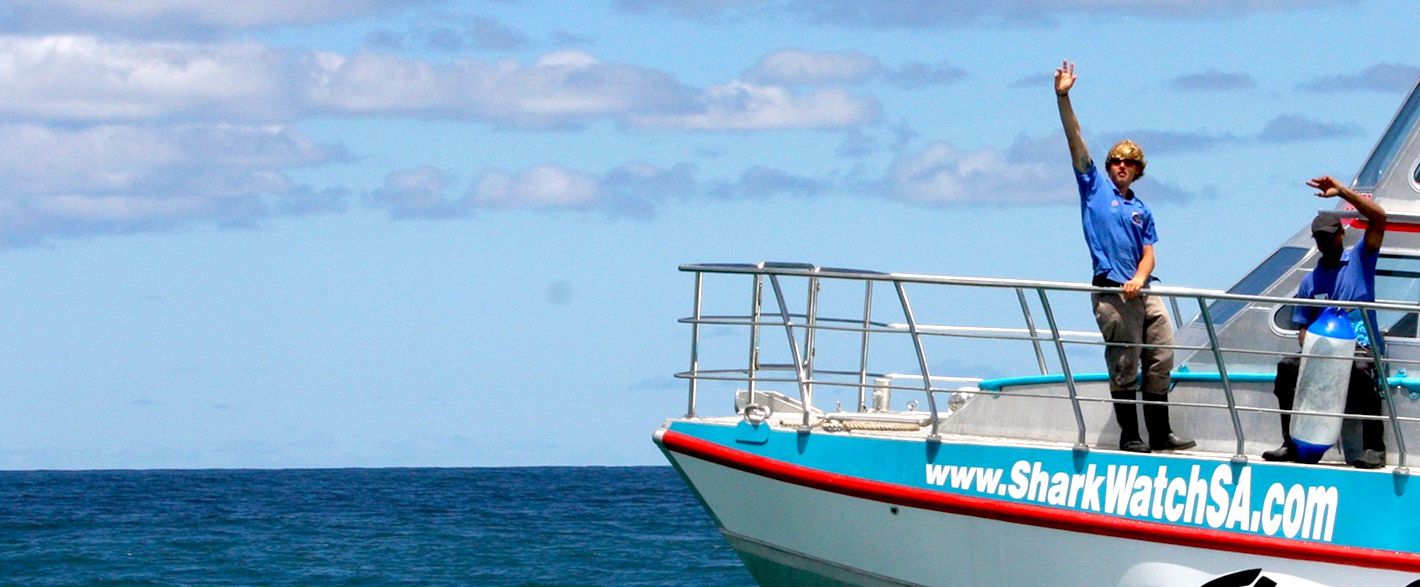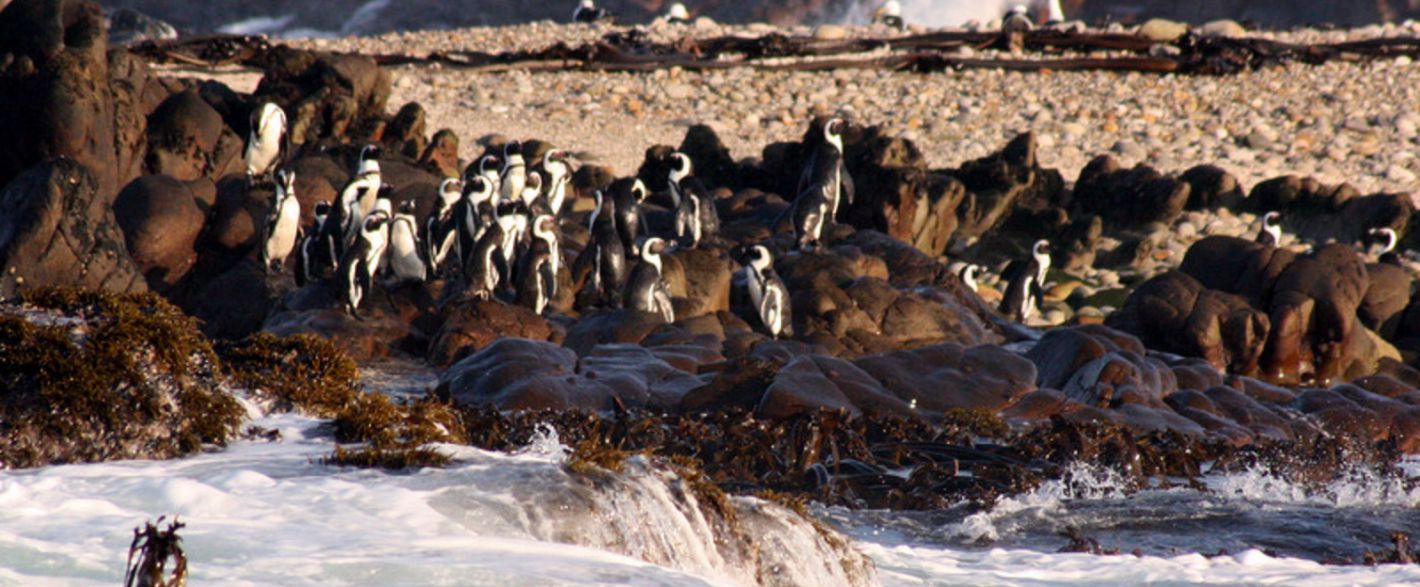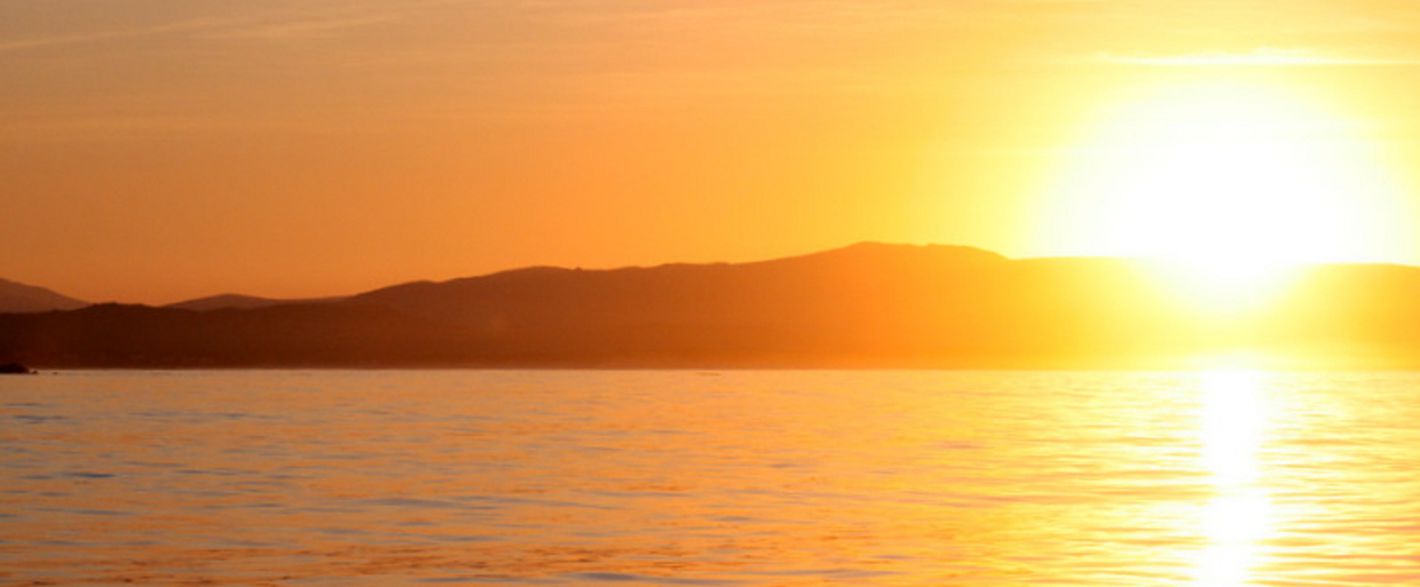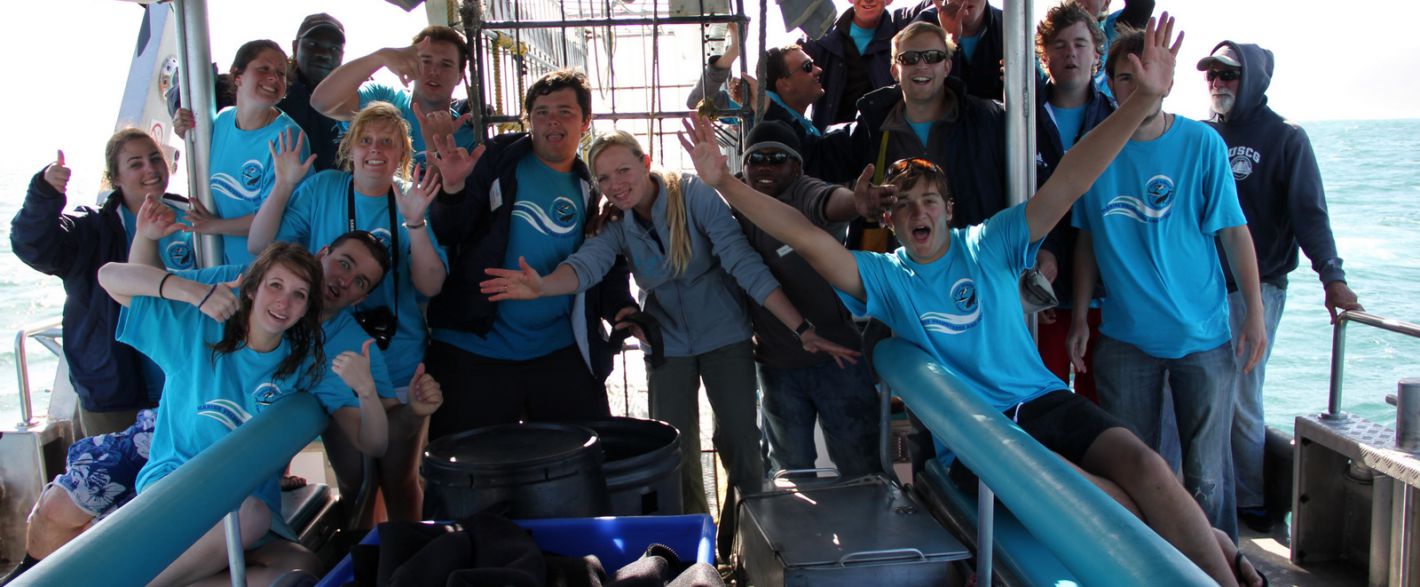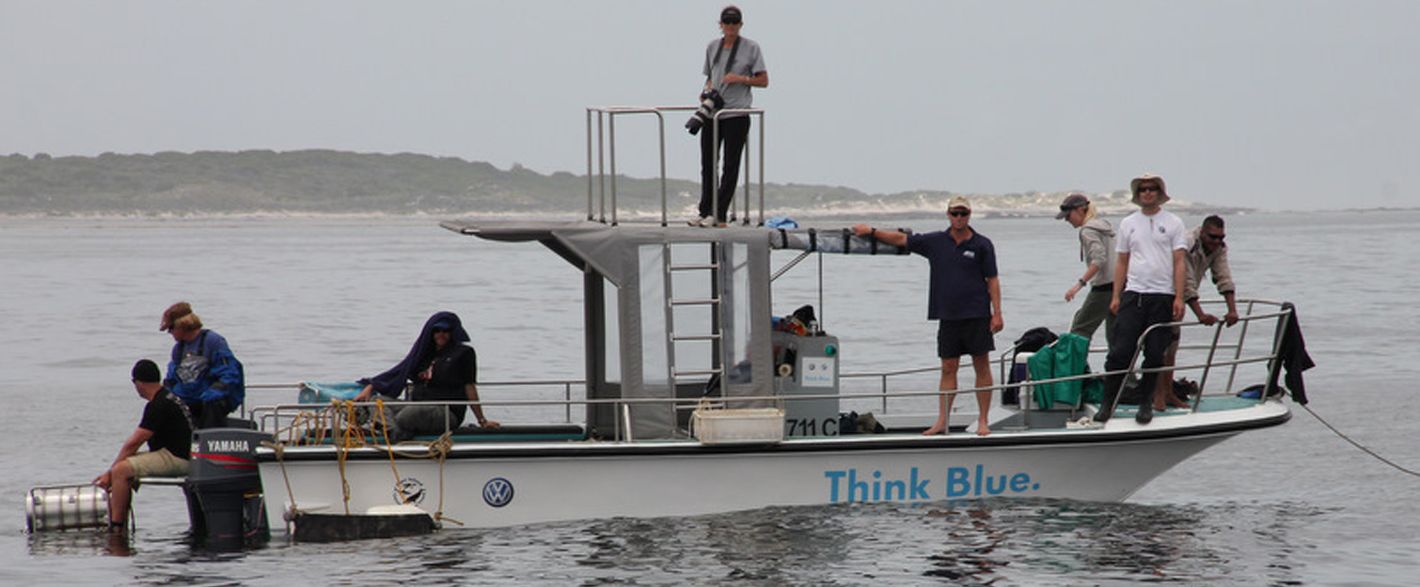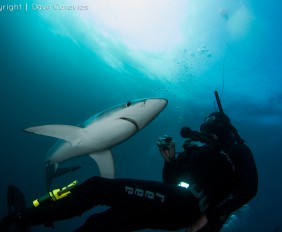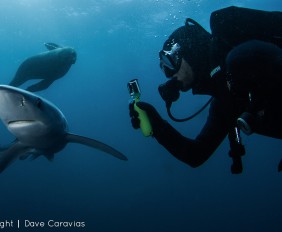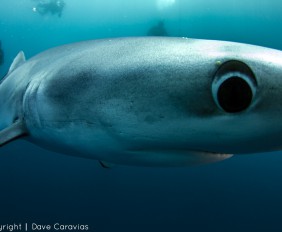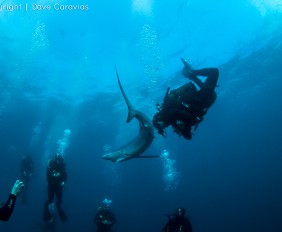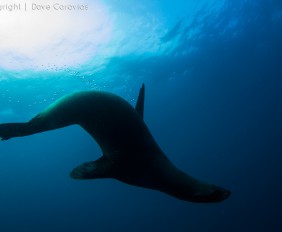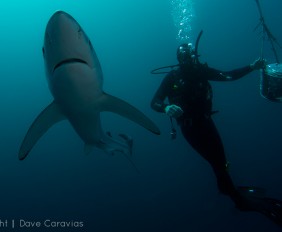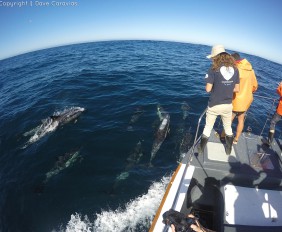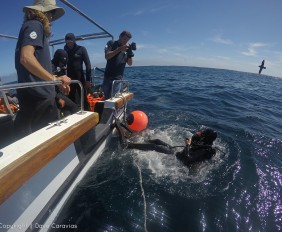The Dyer Island Conservation Trust
_142x92_crop_-1.png)
The Dyer Island Conservation Trust was founded in 2006 by Wilfred Chivell. Operating in the incredible marine environment of Gansbaai in the Overstrand area of the Western Cape, this area is home to the Marine Big 5™ – a hotspot for the great white shark; the breeding ground of Southern right whales; home of the endangered African penguin; a breeding colony of Cape Fur seals and dolphin species that visit these shores, as well as plenty of incredible seabirds.
Together with eco-tourism partners Marine Dynamics and Dyer Island Cruises, the Trust conducts valuable research, conservation and education. The companies support the Trust financially and are essential in fundraising for the Trust.
The Dyer Island Conservation Trust delivers unique conservation and research programmes in the fragile and critically important marine eco-system at the southern-most tip of Africa. Here we strive to protect the largest surviving colonies of the endangered African Penguin whose numbers are at an all-time low; the globally important breeding and calving grounds of the Southern Right Whale; and, the world's densest populations of the vulnerable Great White Shark.
DICT is a registered Public Benefit Organisation (930032314) in terms of section 30 of the Income Tax Act 58 of 1962 and donations to the organisation are exempt from donations tax in terms of section 56(1)(h) of the Act.
Trustees
Trustees of the Dyer Island Conservation Trust include scientists and entrepreneurs – Wilfred Chivell, Prof Les Underhill (Animal Demography Unit, University of Cape Town), Mike Gibbs (UK), Tertius Lutzeyer (Grootbos), Deon Pitzer.
Partners
Partners include but are not limited to: Department of Environmental Affairs; CapeNature; SANCCOB (Southern African Foundation for the Care of Coastal Birds); Animal Demography Unit - University of Cape Town; Mammal Research Institute – University of Pretoria; WWF (World Wildlife Fund); Overstrand Municipality; Birdlife Overberg; WESSA (Wildlife Environment of South Africa); the Two Oceans Aquarium Cape Town.
The Trust projects focus
The Trust projects are focused on the Marine Big 5 surrounding Dyer Island. Dyer Island lies 8kms off Kleinbaai harbour and is a breeding colony for the African penguin, a species endemic to southern Africa. The Island is managed by CapeNature and is considered an Important Bird Area by Birdlife International.
The population of the African penguin has decreased by 90% in 30 years, leading to their being listed as Endangered with the International Union for the Conservation of Nature IUCN (May 2010). This decline is influenced by various factors but the historic guano scraping in the 19th and 20th centuries, for use as agricultural fertilizer, left penguins forced to nest on the surface instead of the soft guano burrows they would normally make. This has left them exposed to heat stress leading to nest abandonment and subsequent predation of the eggs and chicks, most especially by the Kelp Gull.
Chivell identified the need for shelters that would mimic the natural burrows of the penguin, essentially creating homes for the breeding pairs and improving the chances of fledgling survival success. He created a fibreglass/mesh resin nest that is lightweight yet durable and could be made by the local community. The project was given a name, Faces of Need, and officially launched in March 2006, leading to the establishment of the Dyer Island Conservation Trust to manage this and other projects. To date over 800 nests have been placed on Dyer Island and are monitored by a researcher, as to their affect on the breeding success. These nests have also been placed at other breeding colonies. The project has featured locally and internationally and won various awards. Funding raised for this project has contributed to penguin rescue and tracking of penguin movements, to establish the energy expenditure required for feeding and the possible need for a Marine Protected Area around the colony.
Two penguin conferences (2008/2009) were arranged by the Trust and held in Gansbaai and brought together scientists and conservationists to look at the issues. This was instrumental in having the status changed from Vulnerable to Endangered.
The Trust is the local centre for injured and oiled penguins and other seabirds and works closely with SANCCOB where the birds are sent for rehabilitation. All vagrant and visiting seabirds are logged and GPS positions supplied for scientific research.
The Great White Shark
The Great White Shark is a much misunderstood and mysterious creature. In a competitive shark cage diving industry that could be used solely for commercial gain, Marine Dynamics is a leader, in using the time spent at sea to benefit our understanding of the marine environment and actively be involved in research. Biologists on board take hundreds of photographs every day adding to our database of identifying individuals. Marine Dynamics has been instrumental in building a database of thousands of photographs of shark dorsal fin ID. Sharks returning to the bay can be successfully identified and a pattern of behaviour determined. Being on the shark boat daily, an amazing opportunity was provided to witness the wound healing capability of a great white and this poster was presented at the International White Shark Symposium, Hawaii (2010).
The Southern Right Whales
Every year the Southern right whales make their appearance in the area from June to December, as they come to mate and calve. Dyer Island Cruises is a member of the South African Boat Based Whale Association and all data on whales and their behaviour is recorded and this information given to Oceans and Coasts (O&C). The crew collects whale faeces, for the Mammal Research Institute (MRI) (University of Pretoria) to assist with a study on the feeding habits of the Southern right whale.
